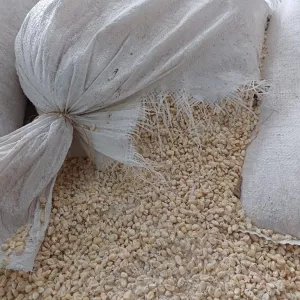Examining how insects spread toxic fungi
According to the World Health Organization (WHO), 10% of the global population suffers from food poisoning each year. Aflatoxins, the main contributor to food poisoning around the world, contaminate cereals and nuts and humans, especially vulnerable groups like the young, elderly, or immune-compromised, and animals are susceptible to their toxic and potentially carcinogenic effects. Fungi contamination occurs all along the

Examining how insects spread toxic fungi
According to the World Health Organization (WHO), 10% of the global population suffers from food poisoning each year. Aflatoxins, the main contributor to food poisoning around the world, contaminate cereals and nuts and humans, especially vulnerable groups like the young, elderly, or immune-compromised, and animals are susceptible to their toxic and potentially carcinogenic effects.
Fungi contamination occurs all along the production cycle, during and after harvest, so the mitigation of the mycotoxins challenge requires the use of an integrated approach, including the selection of farmer-preferred tolerant varieties, implementing good agricultural practices such as crop rotation or nitrogen management, reducing crop stress, managing pests and diseases, biological control of mycotoxigenic strains, and good post-harvest practices.
Monitoring of mycotoxins in food crops is important to identify places and sources of infestations as well as implementing effective agricultural practices and other corrective measures that can prevent outbreaks.

